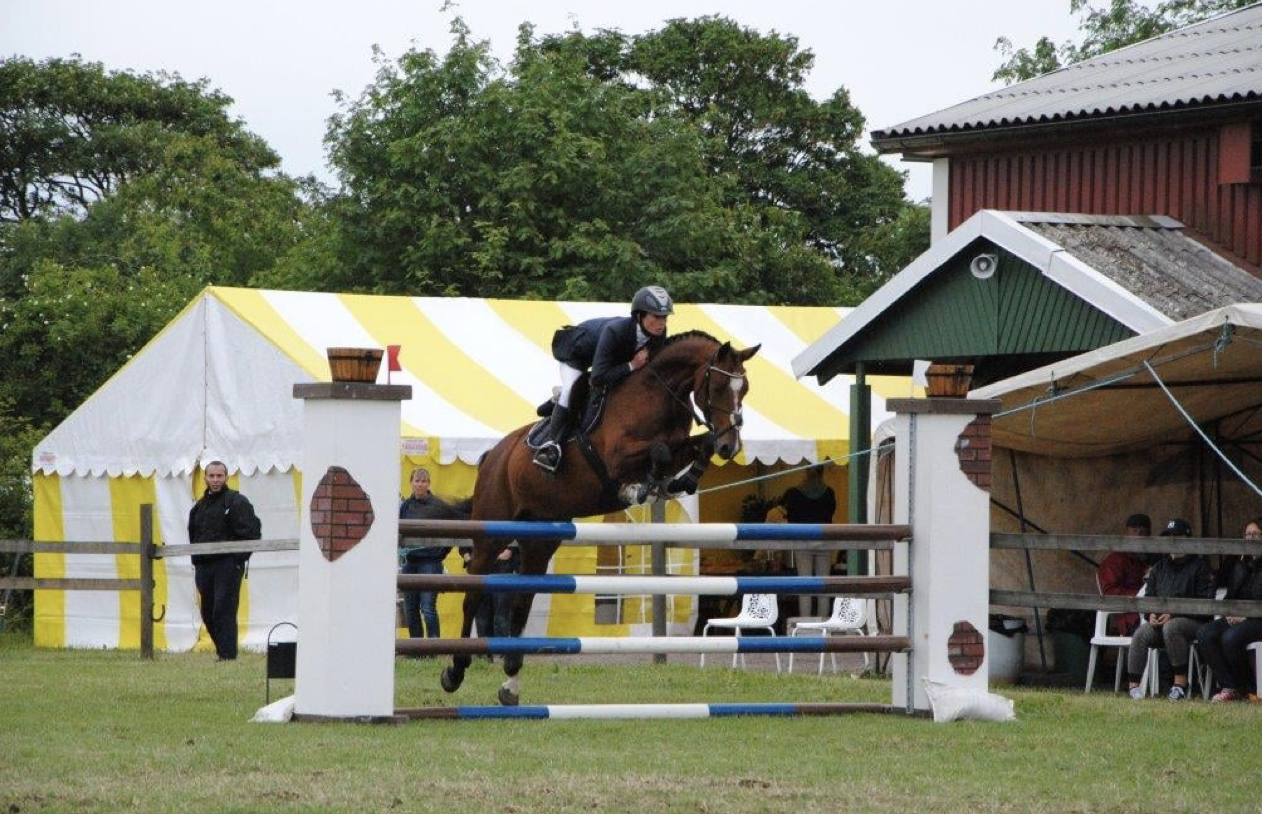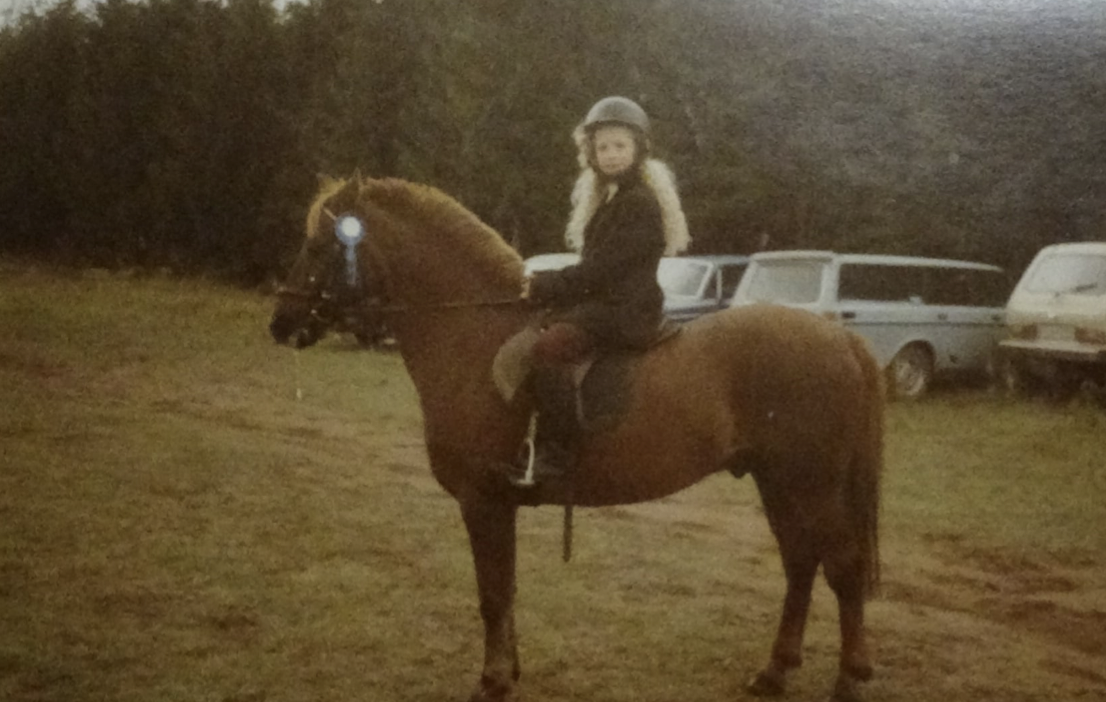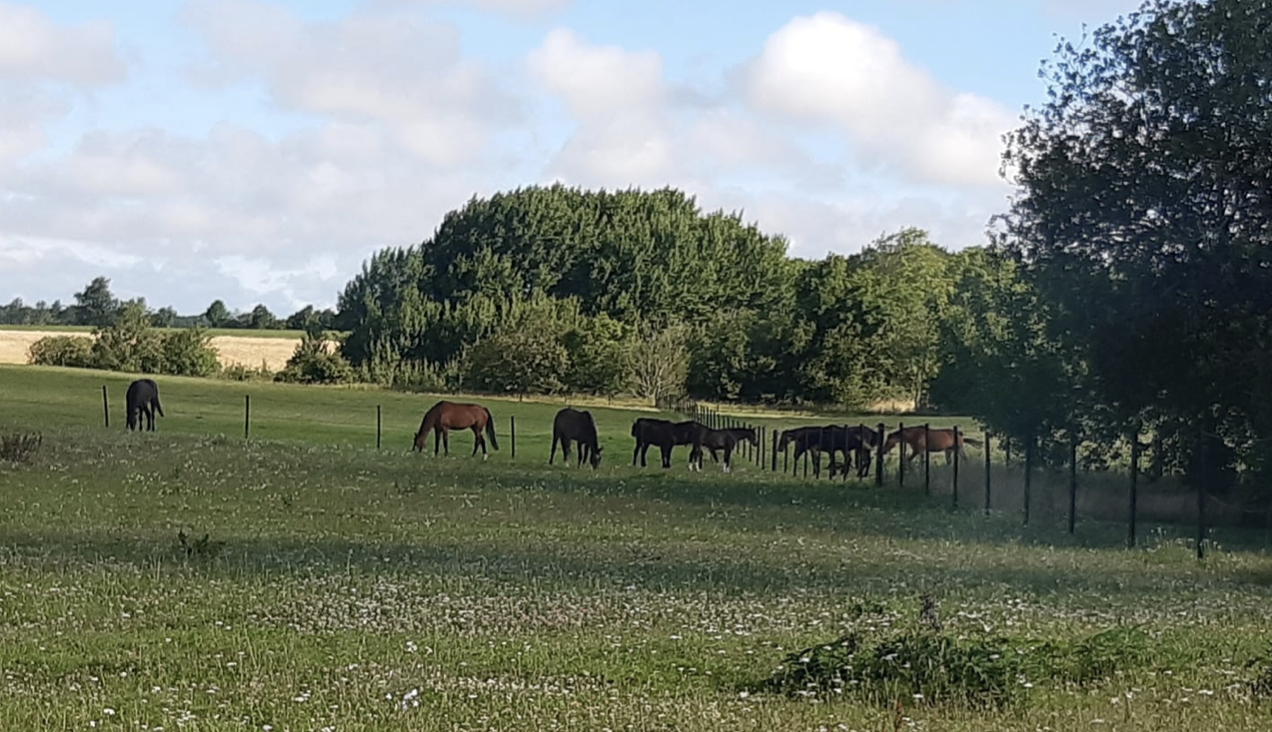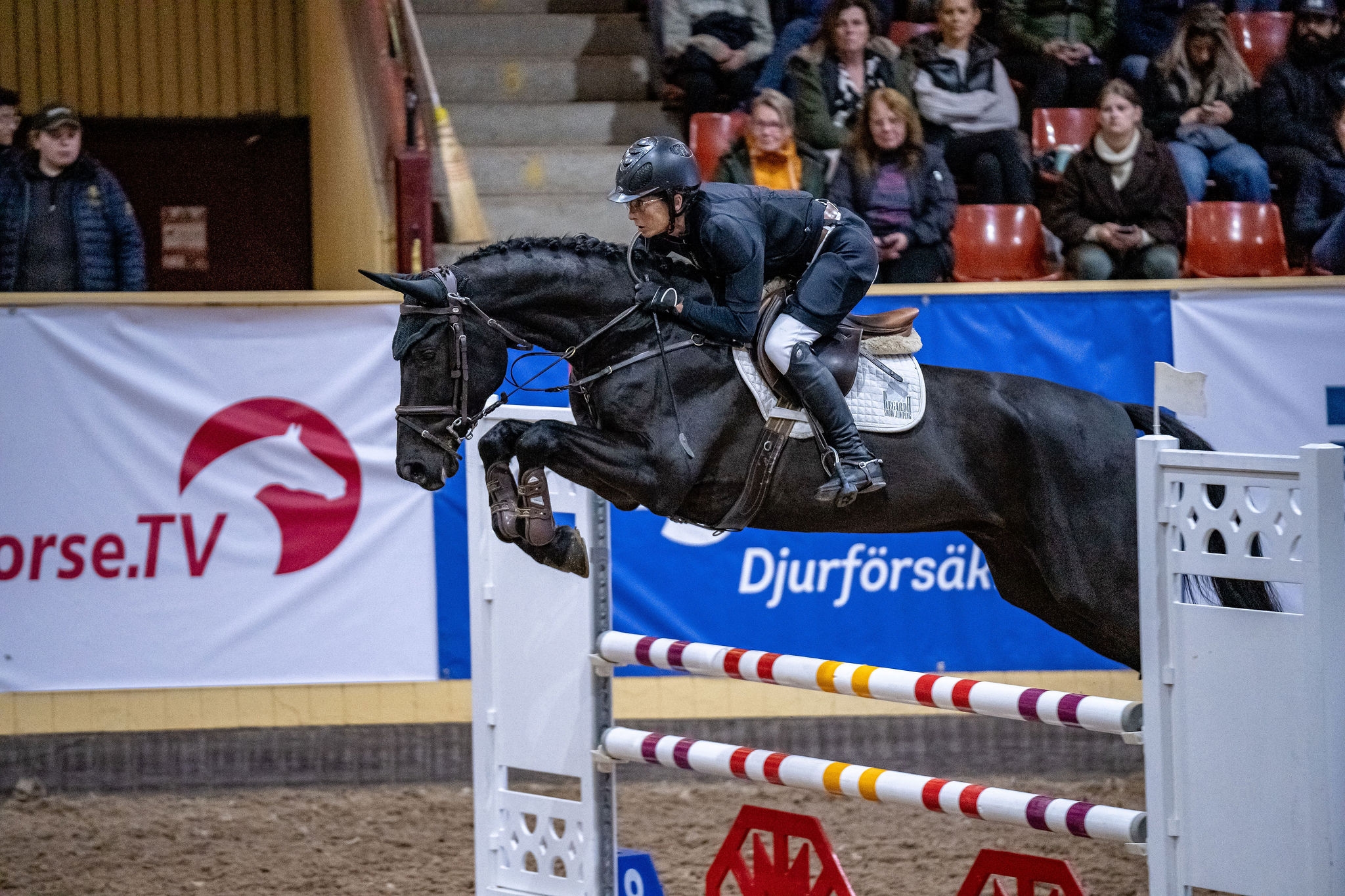
Featured Pro: Magdalena Regårdh
Blog
Featured Pro: Magdalena Regårdh
Magdalena “Maggie” Regårdh is a trainer, rider, and breeder in Lund, Sweden, at Regårdh Showjumping. Her mother owns the small breeding operation, producing one to three foals per year and raising them. Then, Maggie trains the horses and eventually sells them for jumping or other careers. In addition to sales, she is also an instructor and course designer.

Capriz and Maggie
“My situation is a little unique,” Maggie says. “I very rarely train other people’s horses; they are always my mother’s horses. This allows me to train them and produce them at the horse’s own pace. We never have any pressure for results and I can consider the horse’s needs; I enjoy that.”

Maggie and her pony Romulus
Her family always had horses, and Maggie started riding around age three on a Shetland pony. Soon, she was competing in horse shows too. Becoming a professional trainer was a natural progression for her, and she spent two years training in Germany in her early 20s and then trained hunters and jumpers in the United States for 10 years at Crewe Hill Stable in New Jersey. She returned to Sweden when her mother turned 60 and rejoined the family operation.
“Maria Gretzer had a big influence on me, I still take lessons from her,” Maggie says. “Her system is the foundation of how I train my horses and also how I teach my own students. I also had trainers when I was younger who were influential. I learned a lot about the hunter-equitation system from Nancy Millette, who I worked for in New Jersey, and many others. I’m also an avid reader and always learning.”
Europe only has jumpers, so Maggie and her mother focus on producing horses for the top of the discipline. She wants horses that are scopey, brave, careful, willing, want to do the job, and are eager to jump.
“Lucy In The Sky was my heart horse,” she says. “I won 1.50m on her, and then Shane Sweetnam bought her for a customer about five years ago. Shane’s son, Collin, recently won a 1.20m with her in Wellington.”

Mares, foals, and youngsters at home.
The Training Program
“I start training at age two in the fall, it’s nice to have it done before the winter. I take my time and there is no stress. I keep it relaxed so the horses are enjoying it. A session can be only five minutes because we have no timeline,” she says.
Horses go back out in the field, and then sessions begin again when they are three, Maggie works on steering and also does free jumping sessions with them. Then, they head back out into the field for a couple more months. That fall, she does some jumping under saddle before putting the horses back out on winter break.
In the spring when they are four years old, they will go to a horse show and then put them back out in the field. They may also show in the fall of that year, and then they go back out in the field again. Maggie gives them a lot of breaks. “It seems a bit like they are always on break when they are younger,” she says. “But I think it’s so important for them to get a chance to rest and think about what they have learned. They always come back a little better when we start them back again.”
“I really enjoy training young horses, the fourth and fifth year, they develop so much. I get bored if it’s too much of the same thing, but every week with the young horses, something new pops up, for example, the jump develops all of a sudden, and I think, this is what we were waiting for.”
Maggie jumps them 1.10-1.20m as five-year-olds and may take them to the championships if they are ready. She focuses on keeping them comfortable and not pushing too hard. She keeps them longer if they have the scope for bigger classes because she likes to do 1.50m classes when she can. They sell their horses around age nine to someone who can take the horse up through the levels.
“Along the way, if a horse is better suited for a different role, it’s my responsibility to find them a good situation in life. If a horse is in the right situation, it will be appreciated and well taken care of,” Maggie adds.
“I enjoy selling horses to the United States because of the system, a horse may never have to move from a barn and can stay comfortable there because another rider can pick them up, and the horse stays in the barn, eventually maybe even retiring to the lesson program. I brought a horse with me to New Jersey, and she did that. I want my horses to end up somewhere they will be happy.”

All photos courtesy of Maggie Regårdh
To see the current horses that Maggie has listed for sale be sure to visit her ProEquest profile!
